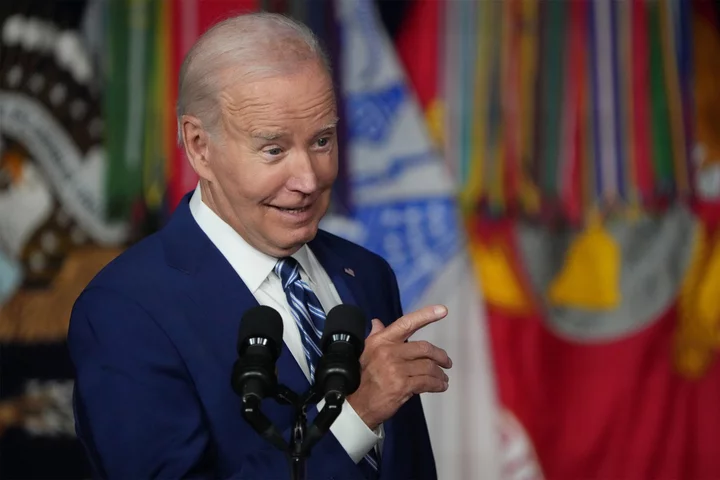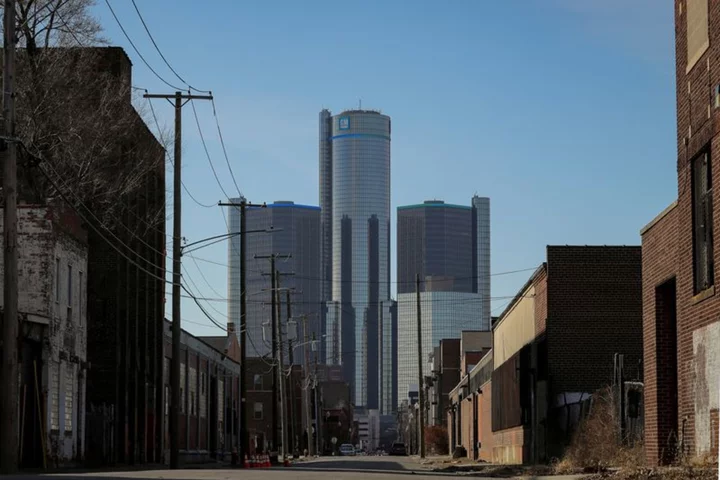President Joe Biden said he regretted the name of one of his signature legislative achievements — the Inflation Reduction Act — saying the title didn’t draw enough attention to its impact on the overall economy.
“I wish I hadn’t called it that, because it has less to do with reducing inflation than providing alternatives where we generate economic growth,” Biden said Thursday at a fundraiser in Park City, Utah.
Next week marks the one-year anniversary of Biden signing the measure into the law, the centerpiece of his domestic agenda. It contains hundreds of billions of dollars to fund clean-energy projects and address climate change and while making sweeping changes to health care policies and the tax code.
Biden touted the legislation’s provisions allowing prescription drug negotiations by the federal government as well as spending for electric vehicles and infrastructure as ways it was fostering economic growth.
Biden, though, has been struggling to sell voters skeptical of his handling of the economy on the notion his policies have led to a boom in manufacturing and other economic gains.
Despite data that shows job gains, cooling inflation and growth in gross domestic product, polls show that voters give Biden poor marks on the economy, threatening his reelection prospects in 2024.
In recent months as he has ramped up his reelection campaign, Biden has touted the law in speeches around the country. Biden has said the billions of dollars in the law for climate measures is spurring a boom in clean energy projects that that are bringing high-paying jobs back to the US and transitioning the country away from fuels that have contributed to global warming.
Biden’s visit to Utah is part of a four-day, three-state swing where he has sought to show how his “Bidenomic” agenda is helping communities across the US. On Wednesday, Biden spoke at the groundbreaking for a Arcosa Wind Towers Inc. facility in New Mexico.
Parts of the Inflation Reduction Act have also rankled key union allies ahead of next year’s presidential election. Auto workers have raised concerns the law’s subsidies could encourage consumers to buy electric vehicles that threaten union jobs.
Republican presidential candidate Donald Trump last month criticized Biden’s efforts to push the public to buy more electric vehicles in a bid to win the endorsement of the powerful United Auto Workers union.
The UAW is currently locked in contentions negotiations with the so-called Big Three automakers General Motors Co., Ford Motor Co. and Stellantis NV. The union endorsed Biden in 2020, but has yet to back a candidate for 2024.
--With assistance from Hadriana Lowenkron and Meghashyam Mali.









